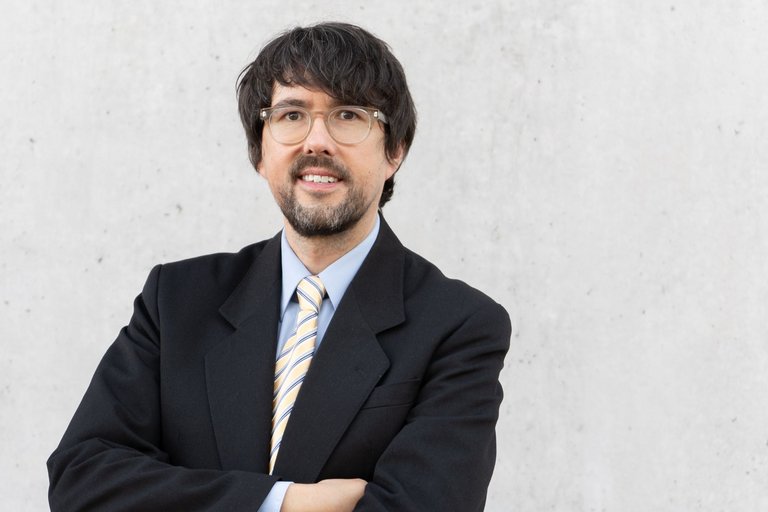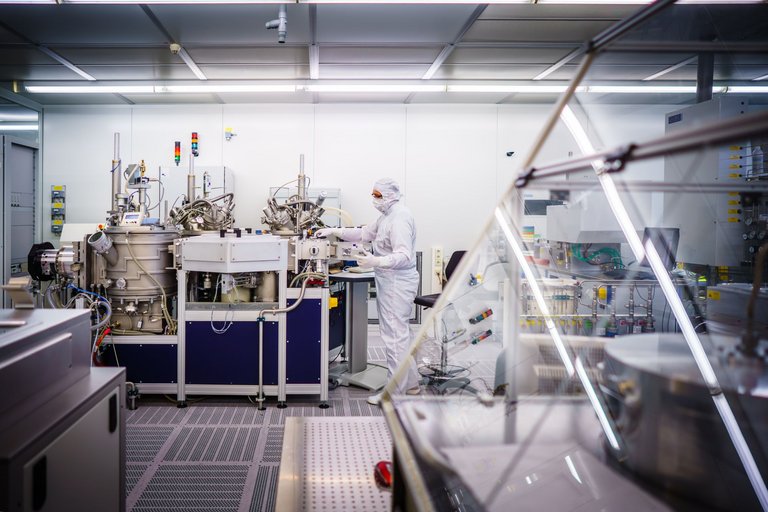Scientists at TU Ilmenau are developing a new, innovative format for digital university teaching as part of a recently launched project: apps for the controllable simulation of complex microsystems, which will benefit students on all engineering courses. The MikroApp project, led by Prof. Steffen Strehle, Head of the Microsystems Technology Group, is being funded with 50,000 euros for 12 months as part of the joint program "Fellowships for Innovations in Digital University Teaching" of the Stifterverband für die Deutsche Wissenschaft and the Thuringian Ministry of Economic Affairs, Science and Digital Society. The fellowships are awarded to highly committed teachers and their ideas for digital teaching.
Apps for teaching microsystems technology: imparting knowledge sustainably and linking it across disciplines

Whether smart home, driving assistance or Internet of Things: microsystems such as pressure and acceleration sensors, microswitches, microphones or microcameras have developed rapidly in recent years. They have become indispensable in numerous technical areas and form an essential basis for technical innovations and economic development in Germany and worldwide: they ensure that technical devices become ever smaller, lighter, more mobile and versatile, save production costs and energy and thus also contribute to mastering social challenges that arise, for example, from increasing energy requirements, digitalization or changing demographics. Microsystems can also be used in medical and patient-oriented diagnostics such as early cancer detection, so-called "point-of-care" diagnostics, and minimally invasive surgery. Miniaturized 3D cell culture systems could even make animal testing superfluous in the future.
With several professorships, the Centre of Micro- and Nanotechnologies and numerous research and corporate collaborations, the associated micro- and nanotechnology research therefore represents a research and training focus at TU Ilmenau. "In order to meet the increasing demand for microsystems, the necessary specialists must be trained in the best possible way," explains Fellow Prof. Steffen Strehle:
This is not only about teaching the complex subject area of microsystems technology in a sustainable way, but also about enabling students to think critically and creatively and to combine knowledge in an interdisciplinary way so that they can find the best possible efficient and innovative solutions in their future careers.
As part of the "Controllable simulation of complex microsystems (MikroApp)" project, Prof. Strehle and his team therefore want to supplement tried-and-tested digital teaching materials and haptic 3D lecture models with interactively controllable apps. A multiphysical functional space can be tested via a software interface without the need for high computing power or special software - a smartphone is all that is required. The aim is to enable students to playfully control and evaluate the system behavior of microsystems and components even without in-depth knowledge of complex numerical simulations, for example by allowing them to set various system parameters such as geometries, signal frequencies or material parameters themselves. "The special thing here is that individual components and systems can also be described across disciplines," says Prof. Strehle: "For example, aspects of electrical engineering, mechanics and fluidics can also be linked and studied for complex geometries and material combinations."
The simulation should not only include idealized functions of individual components and entire microsystems such as pressure, force or motion sensors, but also illustrate the effects of miniaturization as well as technology-related geometric deviations and undesirable effects such as noise. The project will also test new examination and innovative teaching formats that support self-reflection and self-study. Prof. Strehle:
I am convinced that the active, playful experience of using the app will enable us to teach complex issues and technologies in particular, as well as the interplay between different disciplines, in a much more efficient, clear and sustainable way.
The new teaching format will initially be used in the Bachelor's and Master's degree courses in Mechanical Engineering, Mechatronics, Technical Physics and Micro- and Nanotechnologies in German and English. The exchange and double degree programs, for example with the Pontifica Universidad Católica del Perú in Lima and the École Nationale Supérieure de Mécanique et des Microtechniques de Basancon in France, will also benefit from this. It will later be transferred to other disciplines and degree courses.
About the Fellowships for Innovation in Digital University Teaching Thuringia
Since 2018, the Thuringian Ministry of Economic Affairs, Science and Digital Society and the Stifterverband have been awarding fellowships for innovations in digital university teaching to lecturers working at state-funded universities in the Free State of Thuringia. The fellows are selected by a jury made up of lecturers and students from various disciplines and representatives of higher education didactics. Selection criteria are the expected contribution of the planned teaching innovation to the further development of teaching in the respective subject, the intended sustainability and the transfer potential. Another focus is on the applicants' personal commitment to the program.
Contact us
Prof. Steffen Strehle
Head of the Microsystems Technology Group


